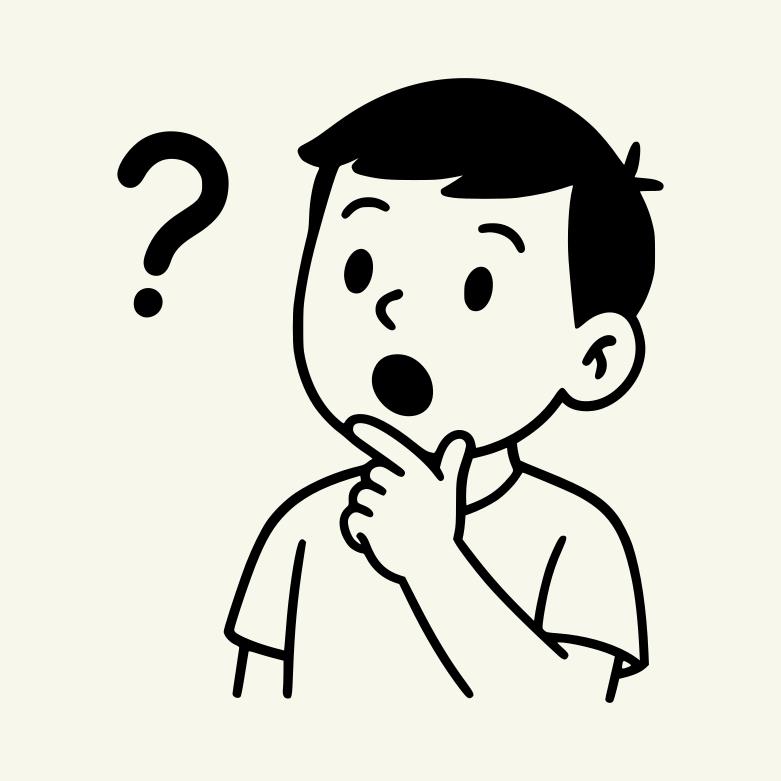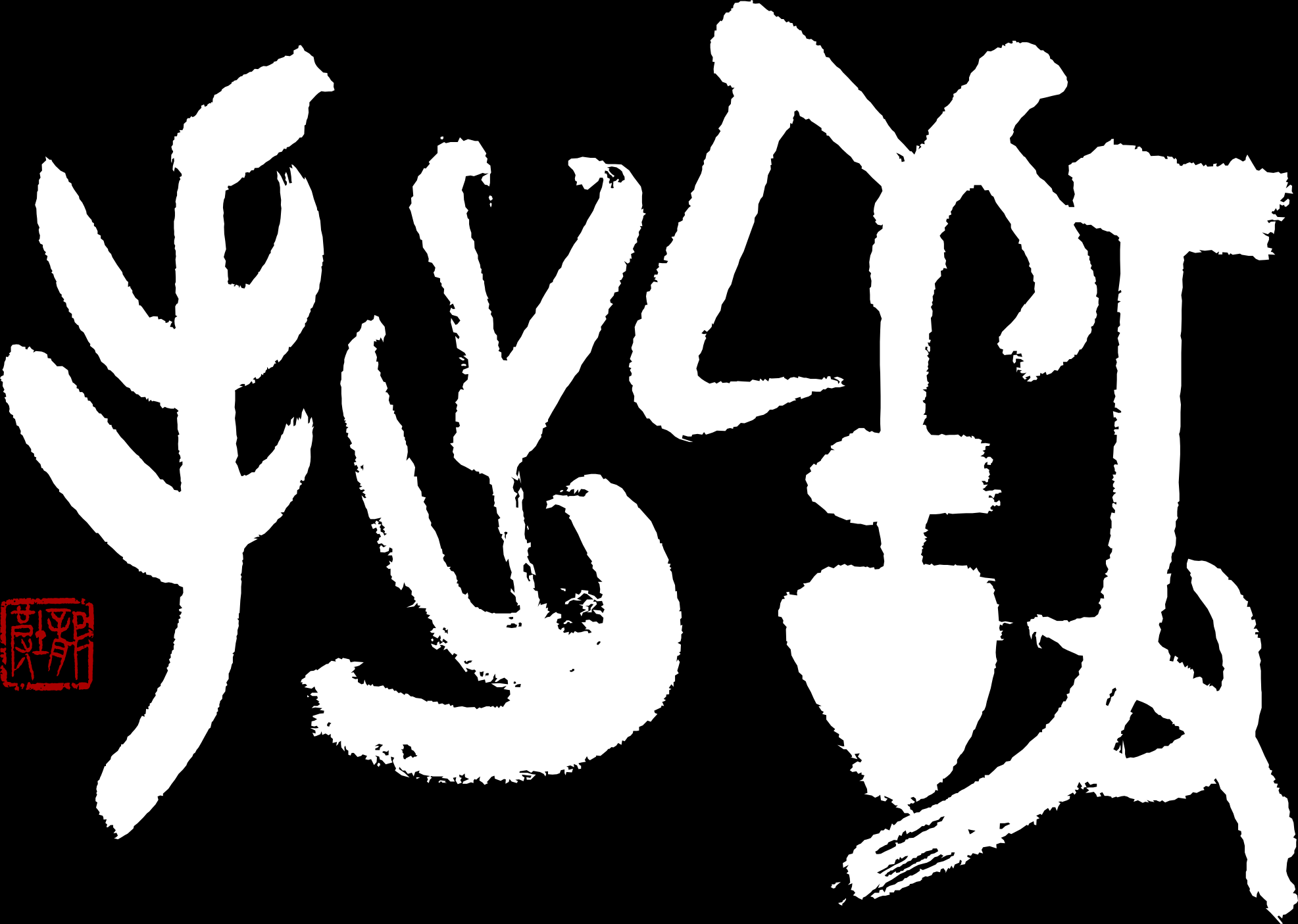| Get Ready! | Listen to the Japanese repeatedly and practice until you can say it smoothly. |
| ① | Repeat each question and answer three times. |
| ② | Your teacher will ask you the questions. Give your own answers. |
| ③ | Ask your teacher the questions and listen to their answers. |
| Pay special attention to the keywords. |
| 041 |  |
| 好き | |
| すき | |
| Question 🔊 | Model answer 🔊 |
|
表示 ▶
漢: キャンディーが好きですか? 漢: いいえ。私はキャンディーが嫌いです。 |
|
| 042 |  |
| あなた | |
| あなた | |
| Question 🔊 | Model answer 🔊 |
|
表示 ▶
漢: あなたはアメリカ人ですか? 漢: いいえ。アメリカ人ではありません。 |
|
| 043 |  |
| ~たい | |
| ~たい | |
| Question 🔊 | Model answer 🔊 |
|
表示 ▶
漢: お茶が飲みたいですか? 漢: はい。お茶が飲みたいです。 |
|
| 044 |  |
| 何時 | |
| なんじ | |
| Question 🔊 | Model answer 🔊 |
|
表示 ▶
漢: 何時に仕事に行きますか? 漢: 8時に仕事に行きます。 |
|
| 045 |  |
| 誰 | |
| だれ | |
| Question 🔊 | Model answer 🔊 |
|
表示 ▶
漢: あなたのボスは誰ですか? 漢: 私のボスはサイトウさんです。 |
|
| 046 |  |
| できます | |
| できます | |
| Question 🔊 | Model answer 🔊 |
|
表示 ▶
漢: スケボーができますか? 漢: いいえ。スケボーができません。 |
|
| 047 |  |
| あなた | |
| あなた | |
| Question 🔊 | Model answer 🔊 |
|
表示 ▶
漢: あなたは寒いですか? 漢: いいえ。私は寒くないです。 |
|
| 048 |  |
| 何 | |
| なん | |
| Question 🔊 | Model answer 🔊 |
|
表示 ▶
漢: あなたの兄妹の名前は何ですか? 漢: 私の兄妹の名前はフランクとベティです。 |
|
| 049 |  |
| 話せます | |
| はなせます | |
| Question 🔊 | Model answer 🔊 |
|
表示 ▶
漢: ドイツ語が話せますか? 漢: いいえ。ドイツ語が話せません。 |
|
| 050 |  |
| あなた | |
| あなた | |
| Question 🔊 | Model answer 🔊 |
|
表示 ▶
漢: あなたは眠いですか? 漢: はい。ちょっと眠いです。 |
|
| Activity | Guess the question – part 1 |
| ① | Your teacher will say their own answers. Try to guess the questions. |
| ② | How many can you guess correctly in 30 seconds? |
| 041 |  |
| 好き | |
| すき |
| 042 |  |
| あなた | |
| あなた |
| 043 |  |
| ~たい | |
| ~たい |
| 044 |  |
| 何時 | |
| なんじ |
| 045 |  |
| 誰 | |
| だれ |
| 046 |  |
| できます | |
| できます |
| 047 |  |
| あなた | |
| あなた |
| 048 |  |
| 何 | |
| なん |
| 049 |  |
| 話せます | |
| はなせます |
| 050 |  |
| あなた | |
| あなた |
|
Timer
30
|
|
Counter
0
|
| Activity | Guess the question – part 2 |
| ① | Now say your own answers. Your teacher will try to guess the questions. |
| ② | How many can you guess correctly in 30 seconds? |
| Listen In | Listen to the dialogue and answer the following questions. |
| ① | Does this person like candy? |
| ② | What time does this person go to work? |
| ③ | What are this person’s pets’ names? |
| Fill In ① | Use hiragana to fill in the missing words in the questions and your own answers. |
| Q041 | [ ] が すき です [ ]? |
| A041 | [ ]。わたし [ ] きゃんでぃー が [ ] です。 |
| Q042 | あなた は [ ] です か? |
| A042 | [ ]。あめりか-じん [ ]。 |
| Q043 | おちゃ [ ] のみたい [ ] か? |
| A043 | [ ]。おちゃ が [ ] です。 |
| Q044 | なんじ に [ ] に [ ] か? |
| A044 | [ ] に しごと に いきます。/しごと に いきません。 |
| Q045 | あなた の [ ] は [ ] です か? |
| A045 | [ ] の ぼす は [ ] です。/[ ] は ぼす が いません。 |
| Q046 | [ ] が できます [ ]? |
| A046 | [ ]。すけぼー が [ ]。 |
| Q047 | [ ] は さむい [ ] か? |
| A047 | [ ]。わたし は [ ] です。 |
| Q048 | あなた [ ] きょうだい [ ] なまえ は [ ] です か? |
| A048 | [ ] の きょうだい のなまえ は [ ] です。/[ ] は きょうだい [ ] いません。 |
| Q049 | [ ] [ ] はなせます か? |
| A049 | [ ]。どいつ-ご が [ ]。 |
| Q050 | あなた [ ] ねむい です [ ]? |
| A050 | [ ]。[ ] です。 |
| Fill In ② | Now do the same using kanji, etc. |
| Q041 | [ ] が好きです [ ]? |
| A041 | [ ]。私 [ ] キャンディーが [ ] です。 |
| Q042 | あなたは [ ] ですか? |
| A042 | [ ]。アメリカ人 [ ]。 |
| Q043 | お茶 [ ] 飲みたい [ ] か? |
| A043 | [ ]。お茶が [ ] です。 |
| Q044 | 何時に [ ] に [ ] か? |
| A044 | [ ] に仕事に行きます。/仕事にいきません。 |
| Q045 | あなたの [ ] は [ ] ですか? |
| A045 | [ ] のボスは [ ] です。/[ ] はボスがいません。 |
| Q046 | [ ] ができます [ ]? |
| A046 | [ ]。スケボーが [ ]。 |
| Q047 | [ ] は寒い [ ] か? |
| A047 | [ ]。私は [ ] です。 |
| Q048 | あなた [ ] 兄妹 [ ] 名前は [ ] ですか? |
| A048 | [ ] の兄妹の名前は [ ] です。/[ ]は兄弟 [ ] いません。 |
| Q049 | [ ] [ ] 話せます か? |
| A049 | [ ]。ドイツ語が [ ]。 |
| Q050 | あなた [ ] 眠いです[ ]? |
| A050 | [ ]。[ ] です。 |
| Zoom In | Substitute the words and talk about these topics. |
| Topic 1 | やりたいこと・やりたい こと・ya·ri·ta·i ko·to = Things you want to do |
| 043 |  |
| ~たい | |
| ~たい | |
| Question 🔊 | Model answer 🔊 |
| Question pattern |
| お茶が飲みたいですか? |
| おちゃ が のみたい です か? |
| Answer pattern 1 |
| はい。お茶が飲みたいです。 |
| はい。おちゃ が のみたい です。 |
| Answer pattern 2 |
| いいえ。お茶が飲みたくないです。 |
| いいえ。おちゃ が のみたくない です。 |
| Variant |
| いいえ。結構です。 |
| いいえ。けっこう です。 |
| Vocabulary | ||
| 1 | お茶が飲み・おちゃ が のみ = drink tea | 挿入 |
| 2 | テレビが見・てれび が み = watch TV | 挿入 |
| 3 | キャンディーが食べ・きゃんでぃー が たべ = eat candy | 挿入 |
| 4 | 本が読み・ほん が よみ = read a book | 挿入 |
| 5 | 休憩が取り・きゅうけい が とり = take a break | 挿入 |
| 6 | 日本語が話し・にほん-ご が はなし = speak Japanese | 挿入 |
| 7 | サッカーがし・さっかー が し = play soccer | 挿入 |
| 8 | ピアノが弾き・ぴあの が ひき = play the piano | 挿入 |
| 9 | 医者になり・いしゃ に なり = become a doctor | 挿入 |
| 10 | アフリカに行き・あふりか に いき = go to Africa | 挿入 |
|
Timer
|
30
|
|
|
Counter
|
0
|
| Notes | To say that you want to do something in Japanese, you replace -ます・-ma·su at the end of the verb with -たい です・-ta·i de·su. If the verb has an object connected to it by を・wo, the を・wo changes to が・ga. Here are some examples.
私は走ります。・わたし は はしります。・wa·ta·shi wa ha·shi·ri·ma·su。 = I run. To say that you don’t want to do something, replace -ます・-ma·su at the end of a verb with -たくない です・-ta·ku·na·i de·su: 私は走ります。・わたし は はしります。・wa·ta·shi wa ha·shi·ri·ma·su。 = I run. To talk about past wants, replace the -い・-i at the end of -たい・-tai (or -たくない・-takunai) with -かった・-katta: 私は走ります。・わたし は はしります。・wa·ta·shi wa ha·shi·ri·ma·su。 = I run. This -たい です・-ta·i form of verbs should only be used to talk about your own wants. It’s OK to use it to talk about other people’s wants in informal conversation, but a different (respectful) construction is used in more formal situations. Also, to talk about wanting someone else to do something, we use yet another construction – we’ll look at this later on. To talk about simply wanting an item (rather than wanting to do something), we use the adjective 欲しい・ほしい・ho·shi·i = desirous. We use this in much the same way that we use 好き・すき・su·ki. この本が好きです。・この ほん が すき です。・ko·no ho·n ga su·ki de·su。 = I like this book. Be careful, though: 欲しい・ほしい・ho·shi·i is an -い・-i adjective, so it should be conjugated (its ending should be changed) to say “don’t want,” “wanted,” or “didn’t want.” この本が欲しくないです。・この ほん が ほしくない です。・ko·no ho·n ga ho·shi·ku·na·i de·su。 = I don’t want this book. |
| Topic 2 | 形容詞・けいようし・ke·i·yō·shi = Adjectives |
| 047 |  |
| あなた | |
| あなた | |
| Question 🔊 | Model answer 🔊 |
| Question pattern |
| あなたは 寒いですか? |
| あなた は さむい です か? |
| Answer pattern 1 |
| はい。私は 寒いです。 |
| はい。わたし は さむい です。 |
| Answer pattern 2 |
| いいえ。私は 寒くないです。 |
| いいえ。わたし は さむくない です。 |
| Variant |
| はい。とても 寒い です。 |
| はい。とても さむい です。 |
| Vocabulary | ||
| 1 | 寒・さむ = cold | 挿入 |
| 2 | 眠・ねむ = sleepy | 挿入 |
| 3 | 若・わか = young | 挿入 |
| 4 | 忙し・いそがし = busy | 挿入 |
| 5 | 寂し・さびし = lonely | 挿入 |
| 6 | 背が高・せ が たか = tall | 挿入 |
| 7 | 強・つよ = strong | 挿入 |
| 8 | 料理が上手・りょうり が うま = good at cooking | 挿入 |
| 9 | 耳が遠・みみ が とお = hard of hearing | 挿入 |
| 10 | ヘビが怖・へび が こわ = scared of snakes | 挿入 |
|
Timer
|
30
|
|
|
Counter
|
0
|
| Notes | Adjectives are words that are used to describe nouns (the names of things). Examples include “big,” “small,” “cheap,” and “expensive.” In Japanese, there are two groups of adjectives: -な・-na adjectives and -い・-i adjectives. Here, we will look at -い・-i adjectives.
When directly joined to a noun, an -い・-i adjective is simply placed before the noun. Here are some examples. 赤い車・あかい くるま・a·ka·i ku·ru·ma = a red car However, when a noun and an -い・-i adjective are joined indirectly, the -い・-i adjective changes. In the following examples, we’ll use the -い・-i adjective 面白い・おもしろい・o·mo·shi·ro·i = interesting. この映画は面白いです。・この えいが は おもしろい です。・ko·no e·i·ga wa o·mo·shi·ro·i de·su。 = This movie is interesting. In this case, the situation is in the present and positive, so we don’t need to change the -い・-i adjective at all. However, if the situation is negative, we change the -い・-i at the end of the adjective to -くない・-ku·na·i: この映画は面白くないです。・この えいが は おもしろくない です。・ko·no e·i·ga wa o·mo·shi·ro·ku·na·i de·su。 = This movie is not interesting. If the situation is in the past, we change the -い・-i at the end of the adjective to -かった・-ka·tta: この映画は面白かったです。・この えいが は おもしろかった です。・ko·no e·i·ga wa o·mo·shi·ro·ka·tta de·su。 = This movie was interesting. If the situation is in the past and negative, we change the -い・-i at the end of the adjective to -くなかった・-ku·na·ka·tta: この映画は面白くなかったです。・この えいが は おもしろくなかった です。・ko·no e·i·ga wa o·mo·shi·ro·ku·na·ka·tta de·su。 = This movie was not interesting. (The -い・-i at the end of the adjective becomes -くない・-ku·na·i, and then the -い・-i at the end of -くない・ku·na·i becomes -かった・-ka·tta giving the overall change from -い・-i to -くなかった・-ku·na·ka·tta.) Note that we do not change the verb: です・de·su stays as です・de·su. The idea of conjugating (= changing the endings of) adjectives will be familiar to anyone who has studied French or similar languages. In such languages, the adjectives change according to the number and gender of the nouns being described. The idea of conjugating the adjective (but NOT the verb) according to whether the situation is present, past, positive, or negative can be quite a conceptual challenge, especially for native speakers of English because in English, adjectives are not conjugated at all. The best way to master conjugating -い・-i adjectives is to practice by coming up with your own sentences. Try writing sentences in which the adjective and the noun are joined directly and others in which they are joined indirectly. Also, try writing sentences which describe situations in the present and others that describe situations in the past. Finally, try writing sentences which describe positive situations and others that describe negative ones. Experts on languages use categories like “nouns,” “adjectives,” and “verbs” to help language learners to understand the roles of words in sentences, but the truth is that often these categories are not 100% accurate. Japanese -い・-i adjectives behave in a similar way to the plain forms of verbs. On the other hand, -な・-na adjectives (and we’ll look at these later) share common features with nouns. |
| Talk More Technique | ⑤ Ask back |
| あなたは? |  |
| あなた は? | |
| 🔊 | |
| And you? |
| そっちは? |  |
| そっち は? | |
| 🔊 | |
| How about you? |
| Sample Dialog | |||
| A: | 何時に仕事に行きますか? | A: | なんじ に しごと に いきます か? |
| B: | 8時に仕事にいきます。あなたは? | B: | はちじ に しごと に いきます。あなた は? |
| A: | 7時に行きます。バスで行きます。そっちは? | A: | しちじ に いきます。ばす で いきます。そっち は? |
| B: | 私は歩いていきます。 | B: | わたし は あるいて いきます。 |
| Talk Longer | Use the questions in this unit, the patterns in the Zoom In section, and the Talk More Technique to have a longer conversation with your teacher. |
| 好き |  |
| すき |
| あなた |  |
| あなた |
| ~たい |  |
| ~たい |
| 何時 |  |
| なんじ |
| 誰 |  |
| だれ |
| できます |  |
| できます |
| あなた |  |
| あなた |
| 何 |  |
| なん |
| 話せます |  |
| はなせます |
| あなた |  |
| あなた |
| あなたは? |  |
| あなた は? |
| そっちは? |  |
| そっち は? |
|
Timer
|
2:00
|
|
|
|
| Write Up | Use the questions and answer patterns in this unit to write about your teacher. |
| ① | Make notes of your teacher’s answers to the questions in this unit. |
| ② | Then, try to write the full sentences using kanji, etc. |
| Subject | he ~ : | 彼は~・かれ は~・ka·re wa ~ | ||
| she ~ : | 彼女は~・かのじょ は~・ka·no·jo wa ~ | |||
| Possessive adjective | his ~ : | 彼の~・かれ の~・ka·re no ~ | ||
| her ~ : | 彼女の~・かのじょ の~・ka·no·jo no ~ |
| Q041 | |
| Notes: | [ ] きゃんでぃー が すき です。 |
| In kanji, etc: | |
| Q042 | |
| Notes: | [ ] あめりか-じん です。 |
| In kanji, etc: | |
| Q043 | |
| Notes: | [ ] おちゃ が のみたい です。 |
| In kanji, etc: | |
| Q044 | |
| Notes: | [ ] [ ] に しごと に いきます。/[ ] しごと に いきません。 |
| In kanji, etc: | |
| Q045 | |
| Notes: | [ ] ぼす は [ ] です。/[ ] ぼす が いません。 |
| In kanji, etc: | |
| Q046 | |
| Notes: | [ ] すけぼー が できます。 |
| In kanji, etc: | |
| Q047 | |
| Notes: | [ ] さむい です。 |
| In kanji, etc: | |
| Q048 | |
| Notes: | [ ] きょうだい の なまえ は [ ] です。/[ ] きょうだい が いません。 |
| In kanji, etc: | |
| Q049 | |
| Notes: | [ ] どいつ-ご が はなせます。 |
| In kanji, etc: | |
| Q050 | |
| Notes: | [ ] ねむい です。 |
| In kanji, etc: |
